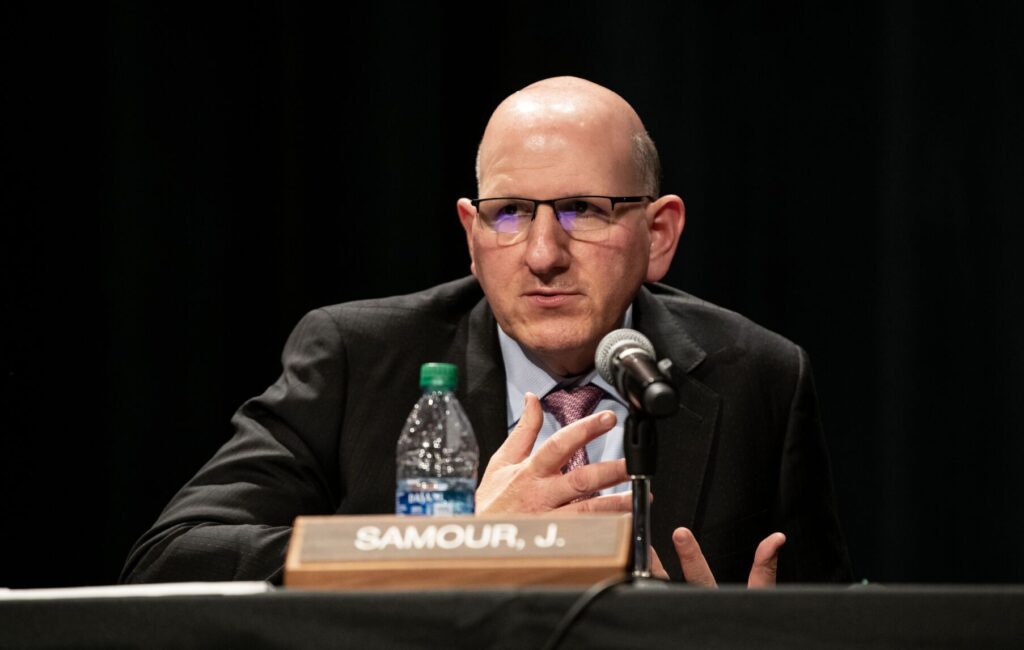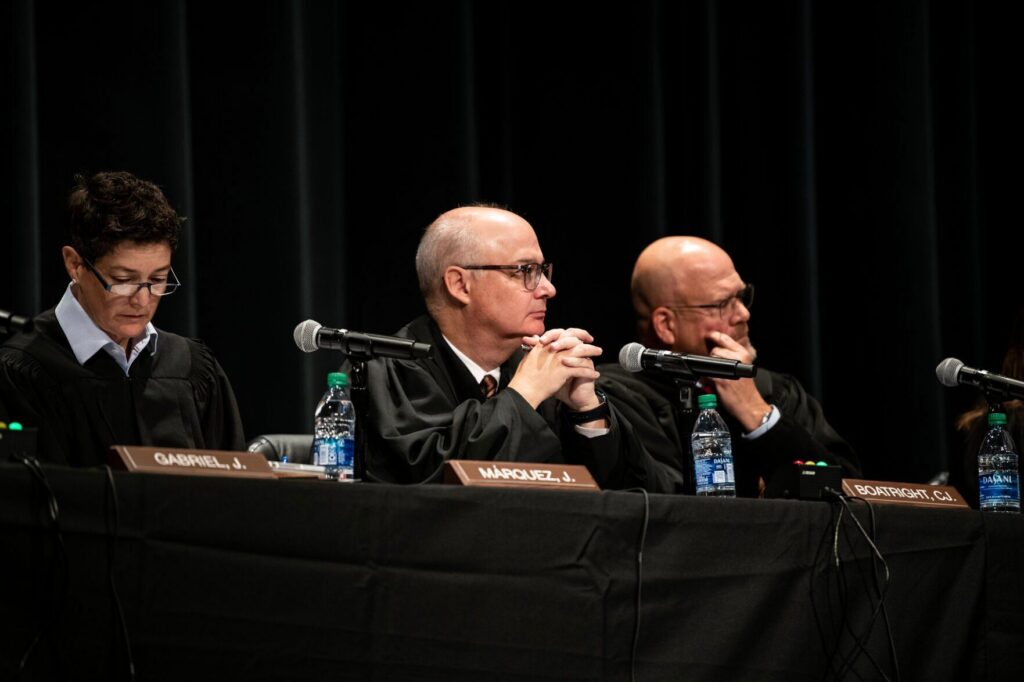Federal judge declines to intervene as anti-vax CU doctor’s contract expires

A federal judge has declined to block the University of Colorado’s medical campus from terminating a faculty member after she refused for nearly two years to receive the COVID-19 vaccination.
“Dr. Jane Doe 3,” a rheumatologist at the CU Anschutz Medical Campus, filed a motion on May 30 alleging she was two days away from having the university not renew her contract. Doe was never vaccinated against the novel coronavirus, and is part of a larger lawsuit by CU medical staff and students whose requests for a religious exemption the university denied.
Although CU placed Doe on unpaid leave, it notified her last fall that her refusal to vaccinate affected her ability to provide “safe care and treatment to a very vulnerable population of patients and study subjects.”
On May 31, U.S. District Court Judge Raymond P. Moore denied Doe’s emergency request to order CU to maintain her contract after June 1. Moore noted Doe has not been receiving pay from CU since October 2021, so it was unclear what “additional harm” Doe would suffer after June 1.
“Second, the fact that Plaintiff Jane Doe 3 has been on notice of her termination for a year and has chosen to wait until the eve of termination to seek extraordinary relief,” he added, “weighs against the notion that is a matter giving rise to irreparable harm.”
The underlying lawsuit features 17 unidentified staff and students connected to the Anschutz campus. The plaintiffs each applied for a religious exemption to receiving the COVID-19 vaccine, with most of them citing their faith-based opposition to the use of cells derived from aborted fetuses in the development of some COVID-19 vaccines. The vaccines as produced and administered do not contain aborted fetal cells.
Although the school denied their requests under its original Sept. 1, 2021 policy, it ultimately granted several accommodations after a Sept. 24 revision, allowing the requesters to perform work remotely. Other plaintiffs, however, resigned or were terminated because their roles required in-person care of vulnerable patients.
Dr. Jane Doe 3, a Catholic rheumatologist, was placed on unpaid leave, as the university noted she cares for immunocompromised and older patients who are at higher risk of contracting COVID-19.
In the early stages of the lawsuit, then-U.S. Magistrate Judge Kathleen M. Tafoya allowed the plaintiffs to remain anonymous because, she explained, “choosing not to become vaccinated can stigmatize an individual as uncaring for the well-being of others.”
Moore initially declined to halt enforcement of the Anschutz campus’ vaccination policy, determining the university was not obligated to “put patients and others in a healthcare environment at risk to accommodate these plaintiffs.”
Last September, the U.S. Court of Appeals for the 10th Circuit heard oral arguments on Moore’s original ruling against the plaintiffs. The panel of three judges, all appointees of Republican presidents, appeared more sympathetic to those who were asserting their religious objections to the COVID-19 vaccine.
“Burdening an individual constitutional right so you can, in the aggregate, reduce the number of people on campus who have potential for COVID – I’m not sure the Constitution contemplates that,” Chief Judge Jerome A. Holmes said at the time.
However, the 10th Circuit panel has not yet issued its decision.
Meanwhile, in mid-May, Dr. Jane Doe 3 attempted to amend the lawsuit with a workplace discrimination claim, after she learned the university would not renew her contract.
“The non-renewal – amounting to the unlawful firing of Dr. Jane Doe 3 – will be effective on June 1, 2023,” wrote attorney J. Brad Bergford, “unless an injunction issues to prevent defendants from taking this ultimate step of terminating Dr. Jane Doe 3’s employment and thereby permanently marring her career in the course of running roughshod over her rights.”
The university previously told her it would plan for her return to work “once you are fully vaccinated,” and explained last September that Doe’s unvaccinated status left her unable to perform her basic job functions of caring for “a very vulnerable population.”
Moore, in declining to intervene in Doe’s non-renewal, was unamused that Doe was asking him to act immediately, given that she “has been suspended without pay for well over a year while taking no action (to) advance a claim that she now asserts as a basis for emergency relief.”
Bergford, Doe’s attorney, pointed out the Biden administration recently announced an end to the federal vaccination requirement.
“Astonishingly, employers are still firing good, long-time employees, including physicians, for not being vaccinated where the employees were not vaccinated due to legitimate medical inability,” Bergford told Colorado Politics, “and due to various religious reasons, which are protected by the First Amendment.”
He also said the vaccinations provide “no protection against transmission,” which is not accurate.
The case is Doe et al. v. Elliman et al.
Editor’s note: Colorado Politics’ parent company is a subsidiary of the Anschutz Corporation.














